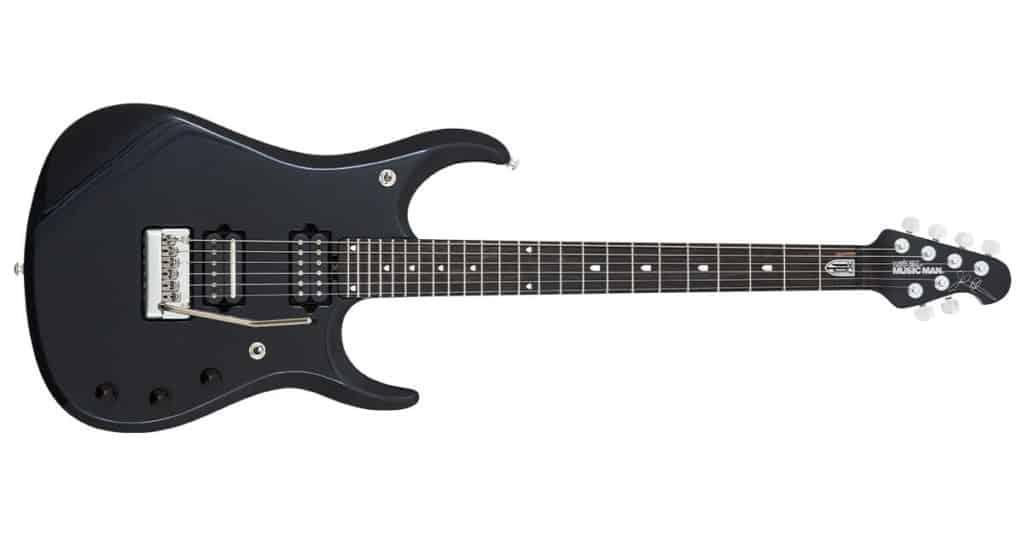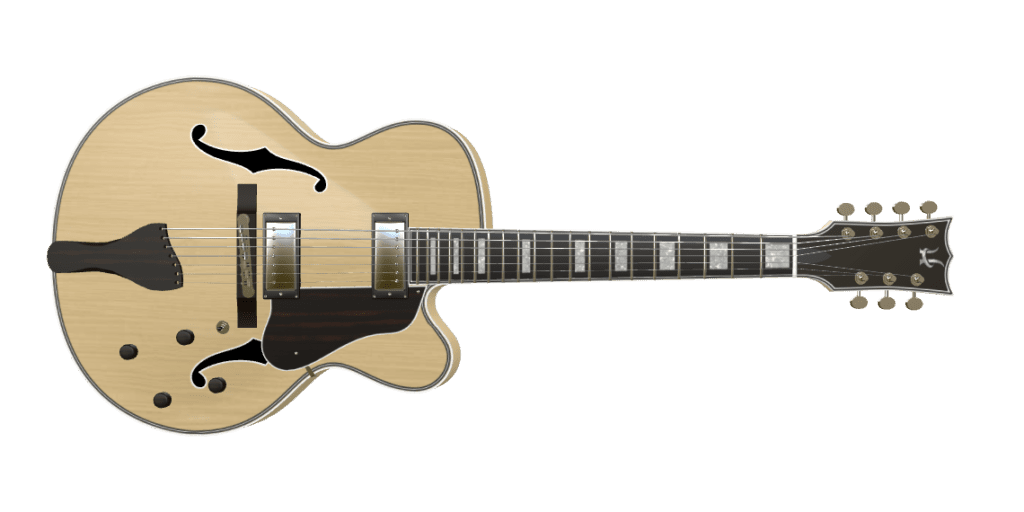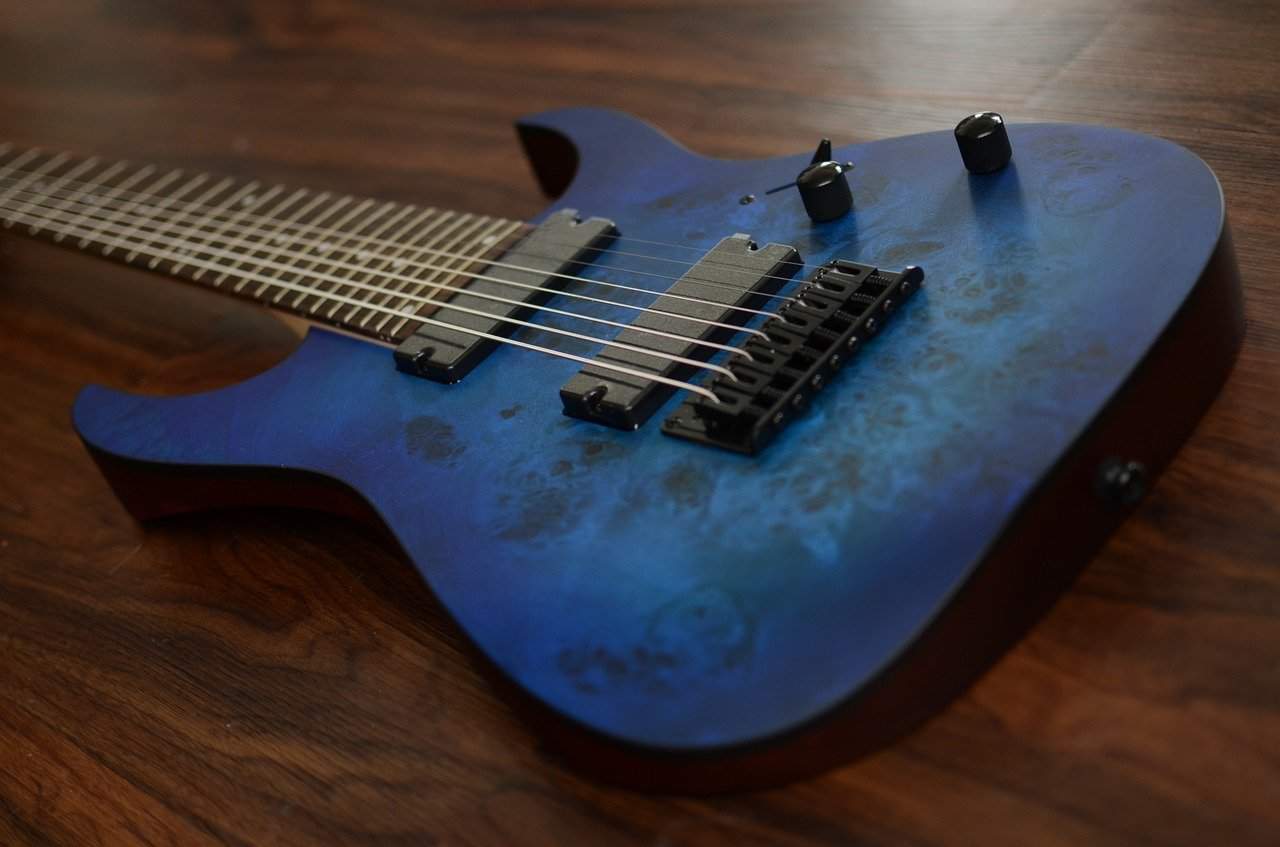6 strings aren’t enough for you, I get it.
But how low do you need to go?
This is a question that plagues the mind of many metal players when hunting for a new axe.
The answer is not absolute, but here is a quick take on the matter:
A 7 string guitar gives you access to a low B or a low A if you drop tune. An 8 string guitar allows for a low open F# or a dropped E. A 9 string guitar usually gets a low C# or a lower B. The more strings you get, the wider and more uncomfortable the neck will be, but lower open strings will sound amazing.
If you want to dive deeper into this dilemma, in this article, I will first determine why you might need extra strings on your guitar.
After that, I would go through the pros and cons of having 7, 8, or even 9 strings.
This is a heavy topic, so please sit comfortably
Are you ready to get started?
Let’s go!
What function do the added strings play?
That’s very simple, the more strings you have, the more ladies you get after the show.
But, apart from that, you might imagine that getting a whole extra string gives you access to a wider range of notes to choose from.
This range extension, is, however, not as big as you might imagine if you don’t stop for a second and think about it.
If you maintain a standard tuning, an extra string will give you 5 extra lower semitones of range.
It is a lot, but you are getting almost half a string of new notes to play, considering that the notes from fret 5 upwards are already available in higher strings.
A big reason to get these extra frequencies, in many cases, is the ability to get a lower open string to djent on.
On the other side, a general drawback, that you will see mentioned all along this post is that more strings require extra space, and you will pay that extra real estate needed in the form of a more uncomfortable wider neck, and a clunkier overall experience.
If you have small hands, as I do, you might prefer to stop reading at this point, before getting hyped up into a decision you might regret as soon as you feel a gargantuan 9 string neck in your hands.
Reasons to go for a 7 string guitar

A 7 string will usually give you access to a low B when played open, or even a low A if you are one of those degenerates that use drop tunings.
Of course, there are many other popular tunings, but this article doesn’t focus on that.
I consider getting a 7 string a reasonable compromise.
You get that extra low end at a rather small cost. Getting used to the slightly wider fretboard is not that terrible, and the overall clunkiness factor of the instrument doesn’t go up that much.
7 strings look pretty much like a normal 6 string guitar, and in many cases, if you are not a headstock starer, you might confuse them if you just take a quick look.
The low B sounds great, and in my opinion, is a very usable note that doesn’t get too much in the way of the bass guitar spectrum of most mixes.
That much so, that 7 strings are also very popular among jazz players since the extended range opens up a lot of amazing voicings, and the chance to play thicker bass lines when comping.

Finally, another big plus: You already are used to a B string in your guitar.
I know, I know. I won’t get judgmental if you don’t already have it memorized yet, but you could kill 2 birds with one stone.
Reasons to choose an 8 string guitar

An 8 string will usually give you access to a low F# when played open, or even a lower E if you are out of your mind and go for a drop tuning.
Just come on, how low do you need to go, man?
If you ever had the chance of holding a monster like one of these in your hands, you would have probably noticed how big the neck starts getting at this point.
However, that low F# is delicious.
It’s a bomb to drop now and then as a statement of how serious things are getting in the song.
The downside is that you will now have a new string to memorize.
Also, you should forget about chords when going this deep.
You see, it’s a matter of overtones, and something that goes beyond the scope of this article, but if you ever tried playing chords in a bass guitar, you will know what I mean.
8 strings are big and clunky.
I would personally not pick one as my main guitar, but as a fun tool to have in the shed, for when things get serious.
Why pick a 9 string guitar

You should really consider getting a bass guitar at this point.
Jokes aside, a 9 string will usually give you access to a low C# when played open, or even a lower B… I’m calling the police now.
Sorry, I can’t help it.
9 strings are almost meme territory.
At this point, you will probably be getting into a lot of arguments with your bass player.
But hey, the important thing here is that you are having fun.
The necks for these guitars are humungous, and it’s yet another new string to memorize.
Actually, if you are going from a 6 string into a 9 string, you would have to learn the 8 and the 9 string. Considering you are used to the B string that’s being replicated in the 7 string.
Things get really serious at this point, and I think you might need some help, or maybe someone to listen to you at home.
Again, this might be a fun tool to have in your arsenal if you have each of the other sounds that appeal to you already covered.
Conclusion
The more strings you get, the crazier things become.
If you have small hands, as I do, I recommend you try the experience beforehand (no pun intended) just to make sure you are comfortable with a wider neck.
But after all, many of us do this for fun, and I can assure you, something this crazy will be loads of it.

Hello there, my name is Ramiro and I’ve been playing guitar for almost 20 years. I’m obsessed with everything gear-related and I thought it might be worth sharing it. From guitars, pedals, amps, and synths to studio gear and production tips, I hope you find what I post here useful, and I’ll try my best to keep it entertaining also.





